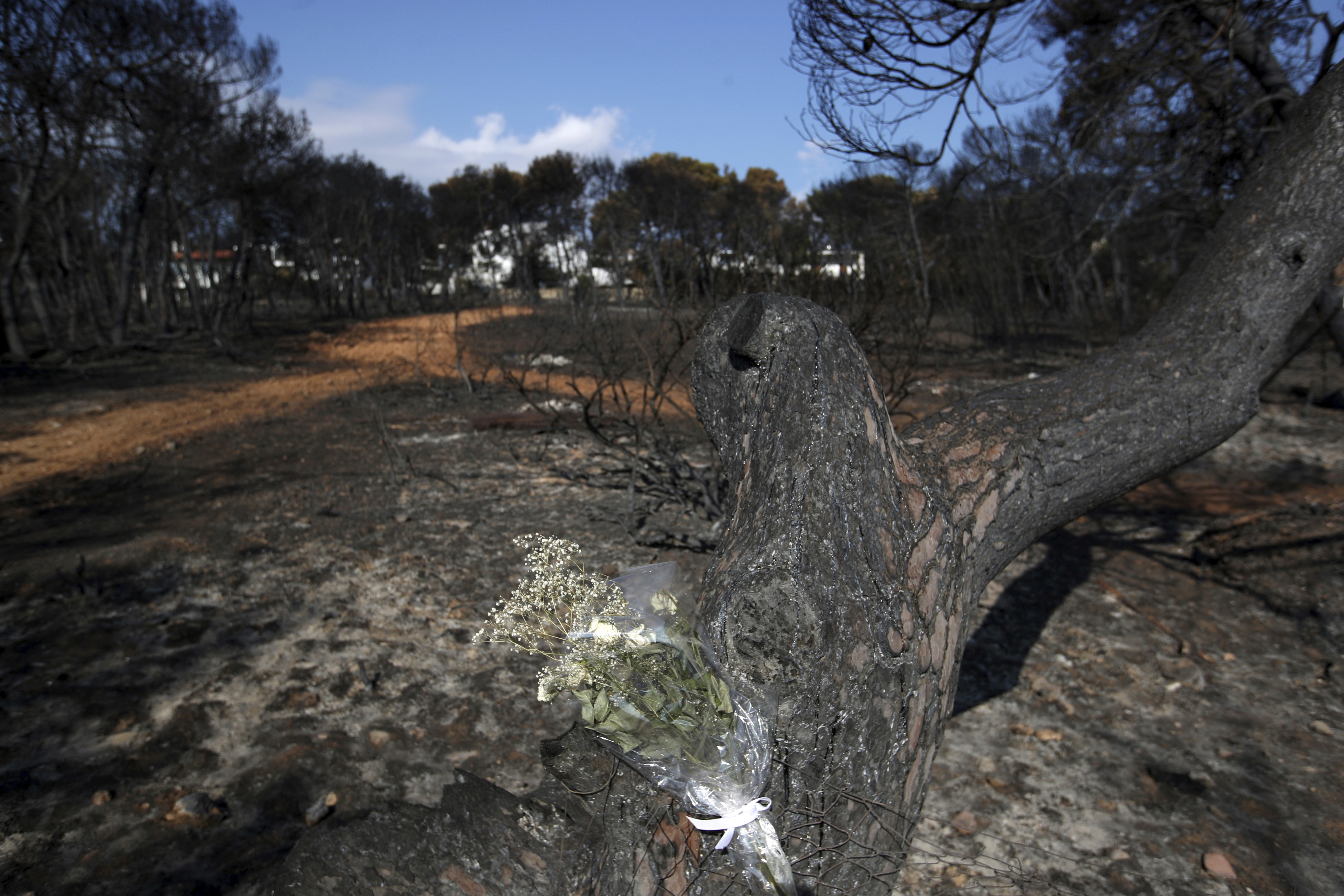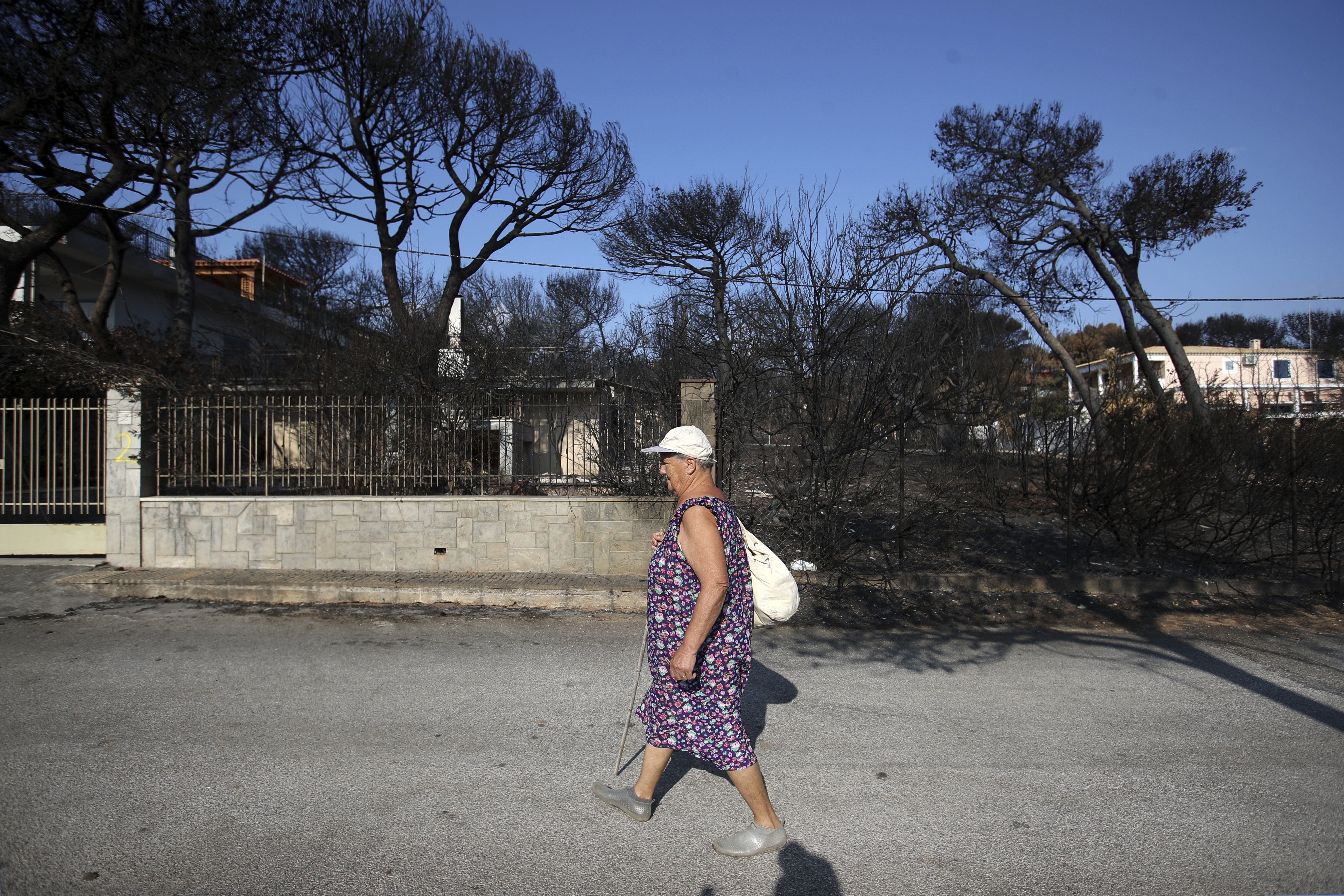
The relatives of two people killed by Greece’s deadliest wildfire in decades have filed a criminal lawsuit against Greek officials for their response to the disaster.
The victims, two teachers aged 70 and 73, became trapped by the flames on July 23 as they attempted to flee their homes in Neo Voutza, a seaside area neighbouring the worst-affected area of Mati, north east of the Greek capital Athens.
Their burnt bodies were found a day later.
Around 90 people are believed to have died in the wildfire that, fanned by gale-force winds, decimated Greek seaside resort areas.

An exact death toll remains to be confirmed as coroners work to identify the remains of victims.
The fire department, which has been issuing the official death toll, said on Tuesday night that the bodies of 80 people, including four who died of their injuries in hospital, had been identified, while a further eight remained unaccounted for.
Many of the victims have been so badly burned that their remains need DNA testing for identification.
The wife and daughter of the 70-year-old man and the son of the 73-year-old woman filed their lawsuit against Greece’s civil protection general secretary, the local regional governor, a local mayor and several officials in the regional civil protection office and in the fire and police departments.
The lawsuit, which accuses them of negligent manslaughter and felony counts of exposing people to danger, describes how the man tried to flee but was unable to open the door to his garage as the electricity had failed.
He and the woman, who was his tenant in the same building, then apparently tried to escape on foot, but were too late.
Their bodies were found some 300-400 metres from their home.

Separately, the government announced it would move ahead with the demolition of illegally constructed buildings in woodland and coastal areas.
Officials have blamed illegal construction, among other factors, for contributing to the high death toll, as Mati had poor town planning, with narrow streets and several dead ends.
Several areas around Athens were initially built up by construction carried out without permits.
However, successive governments then legalised them, allowing them to be connected to the urban power and water grid in return for their owners paying fines and, more recently, property taxes.
Environment minister Giorgos Stathakis told a news conference on Wednesday that there were 2,500 illegally constructed buildings in woodland areas and 700 on beaches in the wider Athens area.
Asked specifically about the fire-devastated Mati area, he said “about 50%” of the buildings there were legal.
Also on Wednesday, Greek authorities arrested a 35-year-old Greek man on suspicion of intentionally setting five fires in the countryside around Marathon, north of Mati – but none of which were related to the Mati fire.
The five blazes, which broke out between July 26-31, were all safely extinguished.
The suspect was to be formally charged with arson, the fire service said.
Authorities are still investigating what caused the deadly Mati fire.
Although officials had initially said that arson was suspected, there is increasing suspicion the blaze might have been caused by negligence.


Comments: Our rules
We want our comments to be a lively and valuable part of our community - a place where readers can debate and engage with the most important local issues. The ability to comment on our stories is a privilege, not a right, however, and that privilege may be withdrawn if it is abused or misused.
Please report any comments that break our rules.
Read the rules here